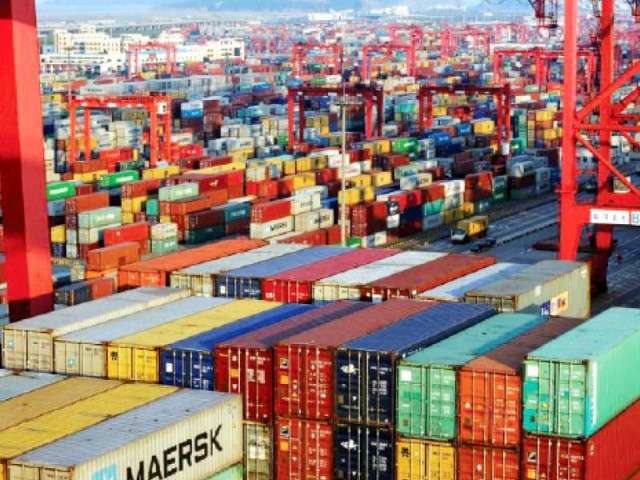GMO licence is only hurting processors
Around 800,000 tons of imported soybean and canola denied clearance

Pakistan has been importing around two million tons of soybean since 2015 and one million tons of canola since 2002.
Currently, around 800,000 tons of soybean and canola, imported in 12 ships, worth around $500 million are stuck at port as these are being denied clearance by the Ministry of Food and Agriculture over the demand of licence for genetically modified organism (GMO) grain imports, even though the same grain is being imported for 20+ years.
The impasse is causing huge losses to the poultry, cooking oil, solvent extraction and dairy sectors, and contributing to the further worsening of food inflation. These industries employ millions of people and collectively form the largest tax contributing sectors of the economy after textile.
The halted cargoes have sparked a debate on GMO and non-GMO feed. It is the differentiator between cultivation and processing.
GMOs intended for cultivation obviously require detailed risk assessments of the impact on agriculture and the environment. Industrial processing, on the other hand, is a much simpler application, and basically requires human and animal health risk assessments, which do not need to be repeated for each country/ environment.
Importing countries normally accept specific GMO traits, which have undergone thorough and extensive testing by credible institutions in the country of origin. Around 40 countries including China, EU members, Saudi Arabia, Malaysia, Turkey, Japan, etc are importing the same grains.
Pakistan has been cultivating GMO cotton since 2005 and cottonseed has been part of our food chain since then. In fact, we are the only country in the world which is cultivating GMOs and not allowing its import for processing.
We have sufficient raw material in the country for poultry feed. But why would any business avoid using locally available raw material and opt for imports, which require more financing and higher exposure to market volatility? Whatever raw material is available is being utilised already in poultry as well as other feeds, for instance.
The fact is that corn-soybean is the most effective poultry feed formulation used worldwide.
There is another understanding that we were making poultry feed without soybean before 2015. That’s not true. Pakistan’s poultry feed processing landscape was never manufacturing the feed without soybean.
We were importing soybean from India, albeit in smaller volumes. India has now become a net importer of soybean.
In fact, the industry’s average Feed Conversion Ratio (FCR), which is the ratio between the feed given and the chicken weight, has now improved from around 2.5 to 1.5, implying an efficiency gain of up to 40%, which has been critical in keeping poultry prices at affordable levels.
There was another speculation that the importers have switched to non-GMO sources since the vessels were not available.
Non-GMO soybean is not available in commercial volumes. And such mills, which had stashes of non-GMO soybean, have already exhausted their inventory. No non-GMO soybean cargo has been purchased since the crisis.
Sellers were able to ship non-GMO canola for three contracts due to an unusually large canola crop in Australia. Interestingly, one of these cargoes from Ukraine was declared as GMO after testing due to the lack of availability of proper standards.
The import permit for soybean mentioned no requirement for a GMO licence prior to 2018. After the import permit was revised in 2018, feed processors applied for a licence to import these grains for processing, which is called Food, Feed or Processing (FFP) with the Ministry of Climate Change.
The applications usually included detailed risk assessment reports from the exporting as well as importing countries, and other prescribed information.
The National Biosafety Committee (NBC) formed a sub-committee in August 2020 to evaluate the applications as Pakistan Biosafety Rules 2005 lacked a proper process for FFP applications.
The sub-committee’s recommendations were approved in the 29th meeting of Technical Advisory Committee (TAC) on February 2, 2022, and are now awaiting final approval in the upcoming meeting of NBC.
There is still no legal framework for a processing licence. The licence procedure or even the application forms for FFP have not been prescribed.
This trickle-down effect is faced by the end-user eventually. Processors will bear losses in the future but the continuing rising prices of chicken are worrisome. And it is only going to increase, if the issue is not addressed on an emergency basis.
The writer is a senior research assistant at the Institute of Development and Economic Alternative (IDEAS)
Published in The Express Tribune, January 23rd, 2023.
Like Business on Facebook, follow @TribuneBiz on Twitter to stay informed and join in the conversation.



















COMMENTS
Comments are moderated and generally will be posted if they are on-topic and not abusive.
For more information, please see our Comments FAQ